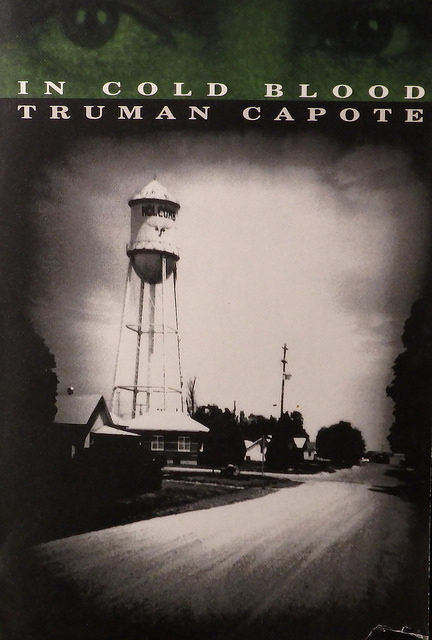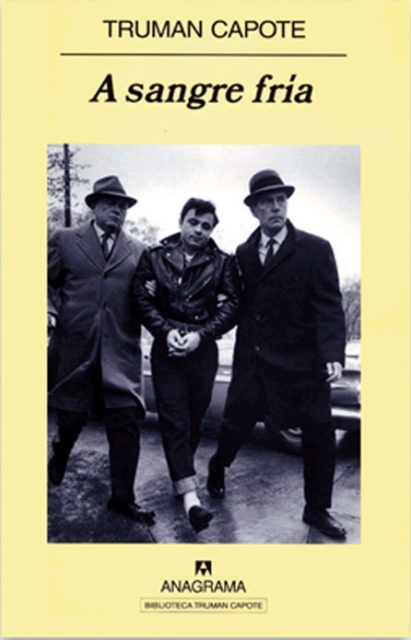Back in the 1960’s, the whole state of Kansas was shaken and traumatized by the quadruple murder when four members of the Clutter family had been killed. The murders took the entire community by surprise, and for the first six weeks, detectives working on the case didn’t have the slightest clue of who might have done it.
The American author Truman Capote traveled in Holcomb, Kansas, accompanied by his friend, Harper Lee so that he could observe the events in the town following the murders. It culminated with his masterpiece In Cold Blood. The book was the first so-called nonfiction novel which prompted a new style in literature.Capote finished the book after six years when the killers were executed.


Until 1959, most Americans had never heard of the little town of Holcomb, Kansas. A small, quiet, and friendly place, where its citizens knew each other. And then, suddenly, on the 15th November 1959, the four members of the prominent Clutter family, the 48-year-old Herbert; his wife Bonnie, 45-years-old; their youngest daughter of 16, Nancy, and their youngest child and only son, the 15-year-old Kenyon, were found bound and shot to death. They were all killed in different rooms around the house, on their River Valley Farm.
For six weeks, the four KBI detectives couldn’t find a single clue about the murders of the beloved and highly respected Clutter family. Until one day, when they received a call from an ex-convict, named Floyd Wells, who had worked for Mr. Clutter in 1948. While in jail for a robbery, Wells told his life stories to his cellmate, Richard “Dick” Hickok. Apparently, Wells told Hickock about his job on a lovely farm, about a nice gentleman named Mr. Clutter, about his property and family.

Hearing Wells’ stories, Hickock decided to go to the Clutter’s property and to kill and rob the family, believing that Mr. Clutter had thousands of dollars in a safe which he kept in his office. As soon as Hickock and his ex-cellmate, Perry Smith, got probation, they made plans to rob the Clutter household. When they arrived in the house, they bound all the four members, but soon they found out that there was no safe or anything more valuable than one pair of binoculars, a portable radio, and 42 dollars.
And yet, before leaving the house, Hickock and Smith shot the family dead and the next week fled to Mexico, while the whole nation was left shocked. After four weeks or so, the police received a call from Floyd Wells who told them about his cellmate Hickock and how he got interested in robbing Mr. Clutter. Soon after his call, Smith, and Hickock were arrested in Las Vegas, on the 30th of December, 1959.

At the trial, the chief investigator in the case, Alvin Dewey, testified that in his confession, Hickock asserted that Smith performed all the killings, while Smith claimed that Hickock was the one who killed the women. However, later, Smith argued that he shot all the family by himself. After their convictions and several appeals, Smith and Hickock were hanged on the 14th April 1965, for first-degree murder.
That’s the clear story about two cold-blooded murders who were hanged for what they’ve done. But Capote elaborated their personalities, their histories, and their lives. And as much as they appear reprehensible, they are also frighteningly human.
